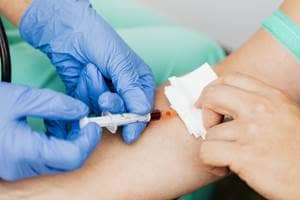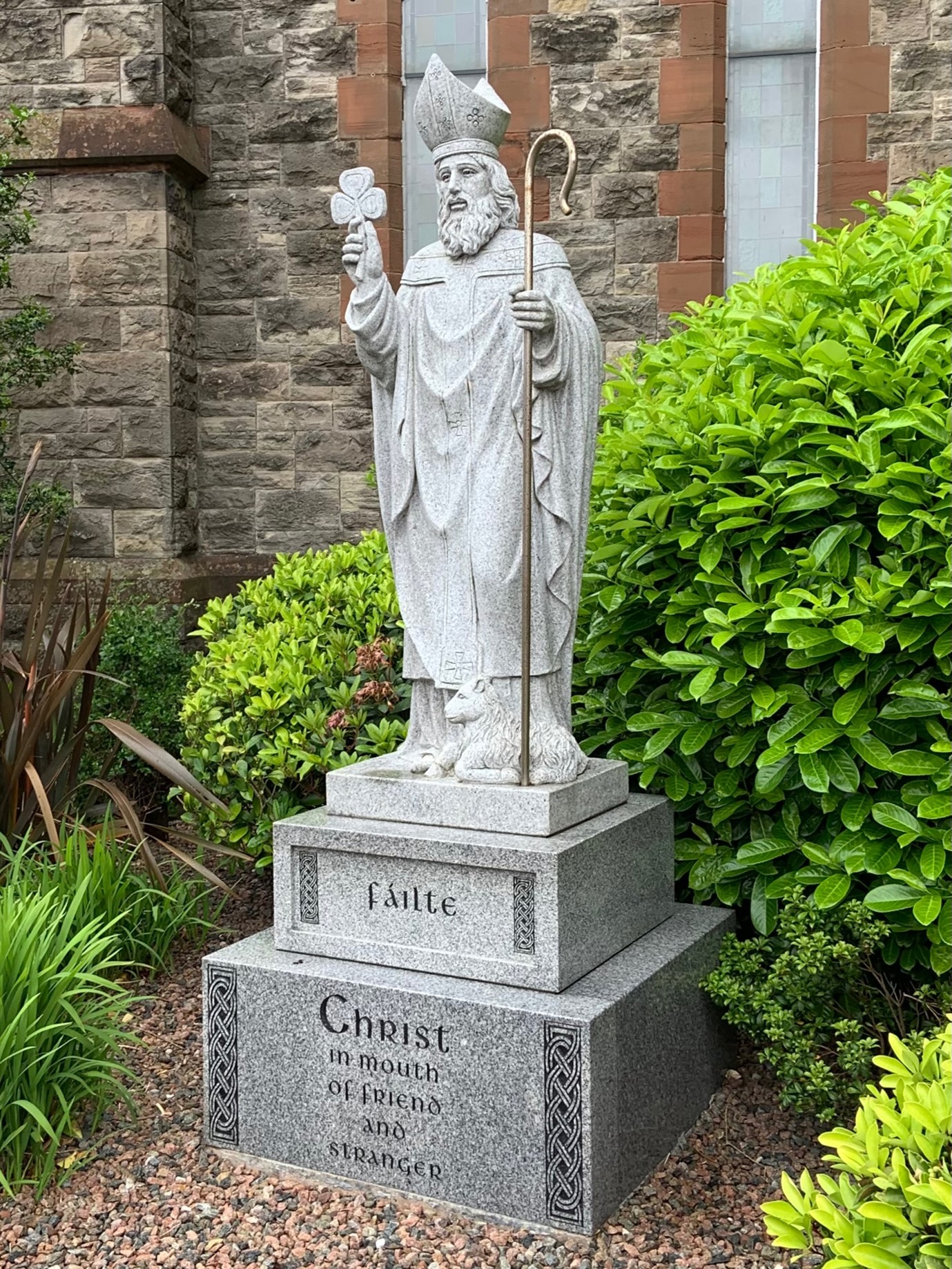
Back in January, that subdued yet optimistic time after Christmas when good intentions abound, I chose to make 2022 the year I would eventually go for it. Waiting in line the previous Autumn for my Coronavirus jab in Belfast, I had seen a promotional sign for the Northern Ireland Blood Transfusion Service. Admittedly, procrastination intervened and only now can I say, “completed it, mate.”
Yes, I know that a single donation – after dilly-dallying for months on end – isn’t all that impressive; a former Presbyterian elder I know has racked up over 200! It’s fair to say that I’m a newbie to this… But all journeys begin somewhere; my donation journey began in St. Patrick’s Hall, the pastoral center on Lisburn’s Chapel Hill.
More importantly than enabling transfusions to happen in our hospitals, there was ice-cold Roman Catholic lemonade on offer to reward successful donors!
Chief Rabbi Lord Sacks writes about religion and science being united in a Great Partnership. As I pulled into the tiny car park on Chapel Hill, I could see this dream team in action. St. Patrick – Ireland’s religious patriarch, frozen in statue form – stood sentinel while Catholics offered sanctuary to medical science.
Now, these donations happen daily; so perhaps I’m locked in an endless mission to theologize even the tiniest incident. It’s a trait we theology grads have. After St. Patrick’s, then, having rested away my post-exsanguination fatigue, I did exactly that. And where better to begin this article than the most influential donor in all history: Christ, Our Savior.
The words Jesus pronounced on the first Easter weekend are instantly recognizable, ‘This is my blood of the covenant, which is poured out for many for the forgiveness of sins’ (Matthew 26:28). I know that a pint of Allen blood will neither seal any covenants nor proffer any forgiveness. As I’ll explain, however, the donation experience at St. Patrick’s was a good opportunity to meditate on the Cross.
Even if Our Lord’s blood is inimitable in its benefits for humankind, a simple donation at a local chapel does mirror the Cross in a way. Jesus’ blood restores our souls to spiritual health. Analogously, the blood in our veins can help our fellow man on the way back to physical health.
Article 38 in the 39 Articles encourages Anglicans to be generous; ‘every man [and woman] ought, of such things as he [or she] possesseth, liberally to give alms to the poor, according to his [or her] ability.’ The doctrine is broad enough to mean any resources that somebody may lack.
As material wealth can disappear in the blink of an eye, so none of us at St. Patrick’s knew for certain that we will never be dependent on donations ourselves to receive a transfusion. Simply because we are human, with a duty to care for all people, each of us are forever in each other’s debt.
If, in any way, human blood functions as a covenant sealant, it upholds this duty – which all of us owe – to care for one another because our neighbor is created in God’s image. And so, to give is to repay God’s boundless compassion. ‘Truly I tell you, whatever you did for one of the least of these brothers and sisters of mine, you did for me’ (Matthew 25:40).
But unlike our mortal blood, and all the material things we put so much erroneous faith in, the Son of God’s blood will never cease to be (1 Peter 1:18-19). Those who drink his blood, like the parishioners of St. Patrick’s, who kindly lend a facility for a good cause, are granted everlasting life and a glorious resurrection on the final day (John 6:54).
Blood is revered, as well, within the Old Testament. A peculiar verse in Genesis 9 states, ‘And for your lifeblood I will surely demand an accounting’ (v. 5a). God, as revealed in these words taken from his covenant with Noah, cares what happens with our very blood. What we choose to do with it is a matter to which our Maker is not indifferent.
Repeatedly, the Hebrew Bible – and especially the five initial books, known as the Pentateuch or the Torah – depicts blood as where life itself is located. It’s quite a mystical thought. Other than Genesis, the Torah comprises Exodus, Leviticus, Numbers, and also Deuteronomy. Renfield’s constant refrain in the Dracula novel and its many film adaptations, ‘the blood is the life,’ comes from the Holiness Code in Leviticus.
The scriptures identify blood as life’s essence to such a degree that, in Genesis 4, God alleges to hear the murdered Abel’s blood speak to him from the ground (v. 10). Against a murderous Cain, who spills blood in jealous anger, God reaffirms the sacredness intrinsic in Abel’s blood. And so, the Creator defends human value before a callous killer.
Turning back to the New Testament, we find Christ’s blood is more special even than Abel’s. It unites the Church as glue binds objects together. Paul, quoted in Acts 20, makes this point well to the church elders in Ephesus, ‘Be shepherds of the church of God, which he bought with his own blood’ (v. 28b). An early Christian hymn, the Te Deum – still used in Catholic parishes like St. Patrick’s – echoes Paul’s instruction.
The final book in the Bible, John’s Revelation, depicts Jesus’ blood – of which Our Lord shed far more than one squidgy donation bag – as bringing him glory. The two dozen elders in the fifth chapter sing, ‘You [Christ] are worthy to take the scroll and to open its seals.’ Why? ‘because you were slain, and with your blood you purchased for God persons from every tribe and language and people and nation’ (v. 9).
Those people whom Jesus bought are thoroughly cleansed of all evil, purified of all sinful corruption, by his blood (1 John 1:7; Hebrews 9:22). As we come to the Lord’s altar for Holy Communion, where the true blood is found, Anglicans recall the redemptive act which our Gospels narrate. In the Prayer of Humble Access, we look to the Messiah’s blood as our means of regeneration.
Given all the biblical attention to blood, we can be sure the red stuff really matters to God. St. Patrick’s realize this. Of eligible donors, however, just a tiny fraction are on their country’s donation register: for Australia, 3% (Department of Health); for Ireland, 3% (Irish Blood Transfusion Service); for New Zealand, 4% (New Zealand Blood Service); for the UK, 4% (BBC News); for the US, 3% (American Red Cross).
Christians can address these worryingly low figures. When we donate our blood, we follow Jesus’ Good Friday work in a small yet significant way. To leaders in the Church, I wonder how buildings under your care could support a local blood transfusion service like St. Patrick’s, Lisburn, does? Whether lay person or clergy, there is always more we can do.
Remember, too: free lemonade!
11/29/2022 11:08:06 PM






